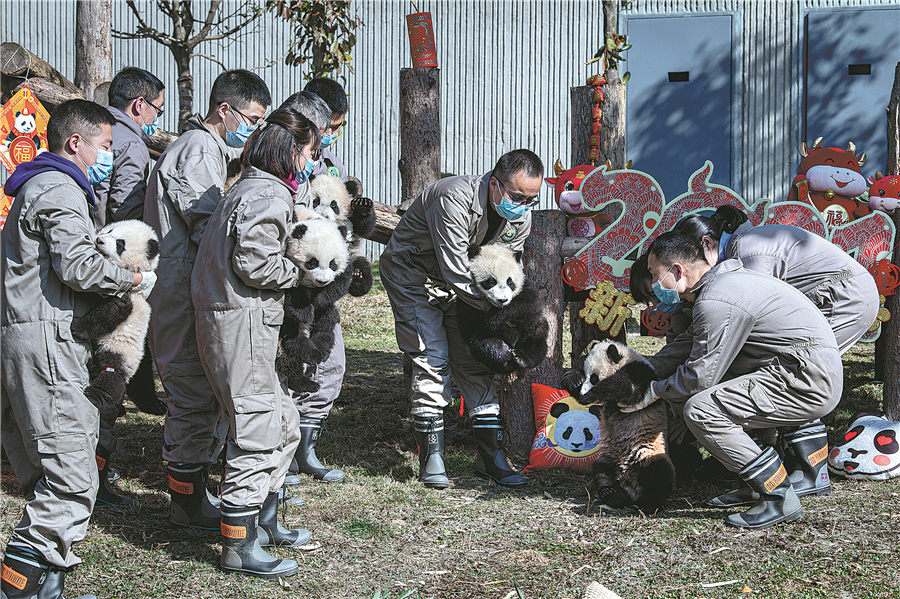

A nursery is usually occupied by two "dads", and they can at most take care of nine panda cubs. Li Dehong, an animal care expert says the artificial breeding of newborn cubs cannot allow even the slightest margin of error, and like human babies, the "dads" must feed milk every two hours. After the end of feeding, the bottles and measuring cups are all disinfected, and they then have to register the amount they have given.
Basically, after doing this, they start the process again with another round of feeding. The panda cubs grow up healthy and strong under their care, and when they are able to crawl, they return to their mothers and explore nature together.
Li Guo, an expert at the Shenshuping base's management office, says that the high birthrate of twins in the base last year reflects the improvement of the management level of giant panda breeding, indicating that the ex-situ protection of giant pandas has achieved promising results. With the increase in the number of captive giant pandas, it can provide a solid guarantee for the training and release of giant pandas and the introduction of giant pandas in the wild.